-
 Bitcoin
Bitcoin $88,354.9846
1.30% -
 Ethereum
Ethereum $1,585.1570
-2.87% -
 Tether USDt
Tether USDt $1.0000
0.03% -
 XRP
XRP $2.0950
-1.00% -
 BNB
BNB $601.2750
0.03% -
 Solana
Solana $138.7714
-1.69% -
 USDC
USDC $1.0000
0.01% -
 Dogecoin
Dogecoin $0.1615
0.76% -
 TRON
TRON $0.2468
0.27% -
 Cardano
Cardano $0.6281
-1.60% -
 Chainlink
Chainlink $13.2373
-2.60% -
 UNUS SED LEO
UNUS SED LEO $9.1021
-2.96% -
 Avalanche
Avalanche $20.1085
0.64% -
 Stellar
Stellar $0.2508
0.12% -
 Toncoin
Toncoin $2.9308
-3.06% -
 Shiba Inu
Shiba Inu $0.0...01247
-1.43% -
 Sui
Sui $2.2499
2.17% -
 Hedera
Hedera $0.1703
-0.51% -
 Bitcoin Cash
Bitcoin Cash $344.9911
1.61% -
 Hyperliquid
Hyperliquid $18.3271
0.87% -
 Litecoin
Litecoin $78.9540
-0.58% -
 Polkadot
Polkadot $3.7860
-3.64% -
 Dai
Dai $0.9999
-0.01% -
 Bitget Token
Bitget Token $4.4576
-1.00% -
 Ethena USDe
Ethena USDe $0.9991
-0.01% -
 Pi
Pi $0.6327
-1.82% -
 Monero
Monero $215.1854
-0.20% -
 Pepe
Pepe $0.0...08022
2.96% -
 Uniswap
Uniswap $5.3079
-2.18% -
 OKB
OKB $50.9891
-0.24%
What kind of currency is AAVE coin? Where to trade AAVE coins?
AAVE coin allows users to lend, borrow, earn interest, and govern the Aave lending and borrowing platform built on Ethereum, offering unique features like interest earning, collateralization, and governance.
Oct 01, 2024 at 05:30 am

AAVE Coin: A Decentralized Finance (DeFi) Token
1. Understanding AAVE Coin
AAVE coin is a decentralized finance (DeFi) token that powers the Aave Protocol, a lending and borrowing platform built on the Ethereum blockchain. It enables users to:
- Lend crypto assets to earn interest
- Borrow crypto assets using their crypto assets as collateral
- Govern the Aave Protocol through AAVE coin voting
2. Trading AAVE Coins
AAVE coins can be traded on various cryptocurrency exchanges, including:
- Centralized Exchanges: Binance, Coinbase, Kraken
- Decentralized Exchanges (DEXs): Uniswap, SushiSwap, Curve
3. Unique Features of AAVE Coin
AAVE coin offers several unique features:
- Interest Earning: Holders of AAVE coins can earn interest by lending them out through the Aave Protocol or by depositing them in staking pools.
- Collateralization: AAVE coins can be used as collateral to borrow other crypto assets. This allows users to access liquidity without having to sell their assets.
- Governance: AAVE coin holders have voting rights to make decisions on protocol upgrades and parameter changes.
4. Considerations for Trading AAVE Coins
Before trading AAVE coins, it is important to consider:
- Market Volatility: DeFi tokens are often highly volatile, and AAVE coin is no exception. It is important to be prepared for price fluctuations.
- Smart Contract Risk: DeFi protocols rely on smart contracts, which can be vulnerable to hacks or bugs. It is essential to do your own research on the Aave Protocol before investing.
- Regulatory Considerations: DeFi regulations are evolving, and different jurisdictions may have different rules for trading DeFi tokens. It is advisable to consult legal advice before participating in DeFi activities.
Disclaimer:info@kdj.com
The information provided is not trading advice. kdj.com does not assume any responsibility for any investments made based on the information provided in this article. Cryptocurrencies are highly volatile and it is highly recommended that you invest with caution after thorough research!
If you believe that the content used on this website infringes your copyright, please contact us immediately (info@kdj.com) and we will delete it promptly.
- Meteora Labs sued by investors over alleged M3M3 token price manipulation
- 2025-04-22 09:40:12
- This is a published version of our weekly Forbes Crypto Confidential newsletter. Sign up here to get Crypto Confidential days earlier free in your inbox.
- 2025-04-22 09:40:12
- Trump Token Unlocks Are When a Group of People—Usually Project Team Members, Early Investors or Advisors—Receive Their Allocated Tokens
- 2025-04-22 09:35:14
- Meme cryptocurrency Dogecoin is currently trading at an important support level against Bitcoin
- 2025-04-22 09:35:14
- Dogecoin (DOGE) Price Broke Out of Two Technical Patterns, Setting the Stage for a Bullish Run
- 2025-04-22 09:30:12
- Mutuum Finance (MUTM) Presale Raises Over $7M From 8400+ Buyers
- 2025-04-22 09:30:12
Related knowledge
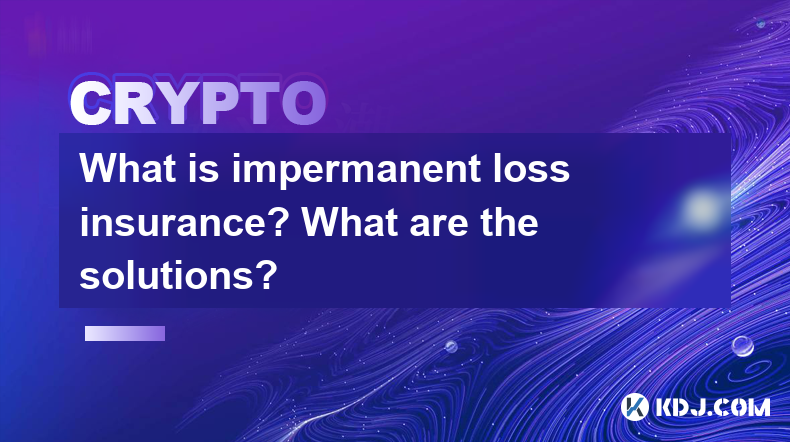
What is impermanent loss insurance? What are the solutions?
Apr 12,2025 at 01:14am
What is Impermanent Loss Insurance? What are the Solutions? Impermanent loss is a significant concern for liquidity providers in decentralized finance (DeFi) platforms. It occurs when the price of tokens in a liquidity pool changes compared to when they were deposited, leading to a potential loss if the provider decides to withdraw their liquidity. To m...
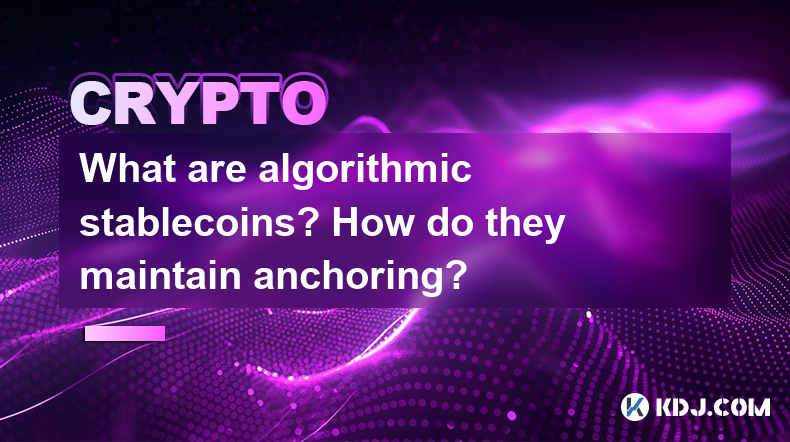
What are algorithmic stablecoins? How do they maintain anchoring?
Apr 12,2025 at 11:35am
Algorithmic stablecoins represent a fascinating and innovative segment within the cryptocurrency ecosystem. These digital assets are designed to maintain a stable value, typically pegged to a fiat currency like the US dollar, through the use of algorithms rather than traditional collateral. This approach distinguishes them from other types of stablecoin...
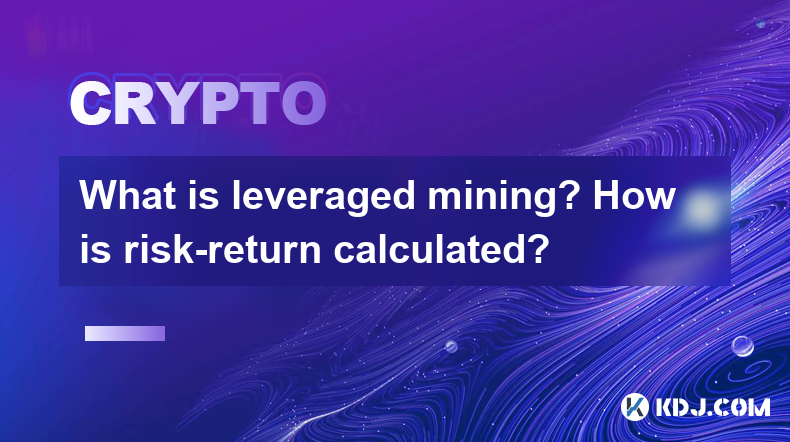
What is leveraged mining? How is risk-return calculated?
Apr 11,2025 at 04:07pm
What is Leveraged Mining? How is Risk-Return Calculated? Leveraged mining is a strategy used in the cryptocurrency space where miners borrow funds to increase their mining capacity and potential returns. This approach can amplify both profits and losses, making it a high-risk, high-reward endeavor. Understanding how to calculate the risk and return asso...
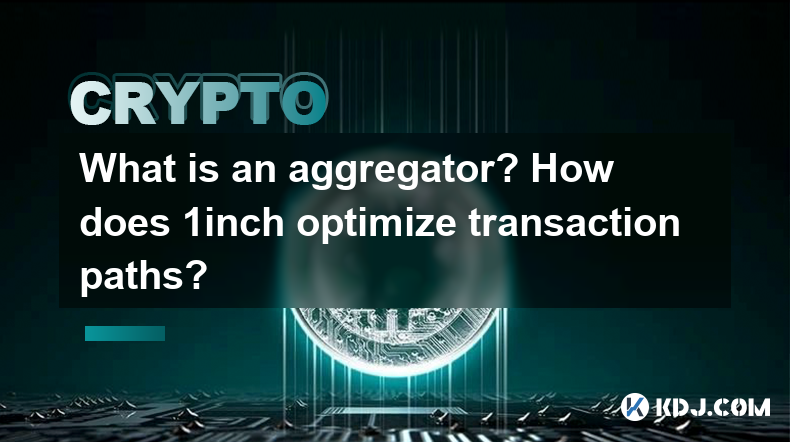
What is an aggregator? How does 1inch optimize transaction paths?
Apr 12,2025 at 05:00pm
An aggregator in the cryptocurrency space is a tool that compiles and compares data from multiple decentralized exchanges (DEXs) to find the best possible trading routes and prices for users. Aggregators are essential for traders looking to optimize their transactions, as they can automatically search through various liquidity sources to ensure the most...
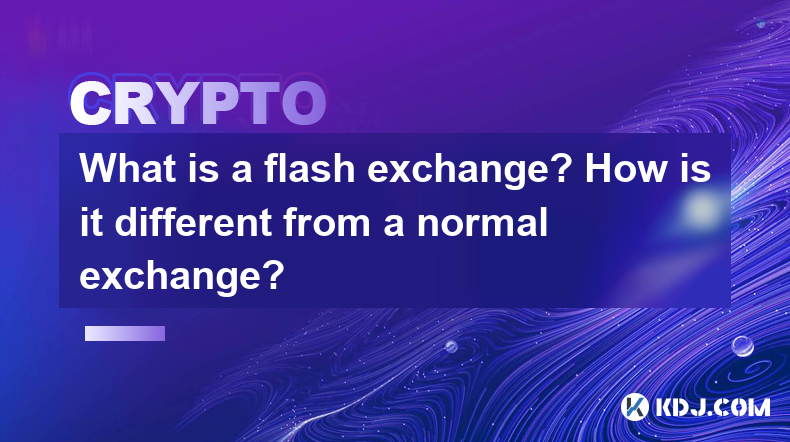
What is a flash exchange? How is it different from a normal exchange?
Apr 16,2025 at 03:43pm
A flash exchange, also known as a flash swap, is a relatively new concept within the cryptocurrency space that has gained significant attention due to its innovative approach to trading. Unlike traditional exchanges, flash exchanges leverage the power of decentralized finance (DeFi) protocols to enable instant, collateral-free trades. In this article, w...
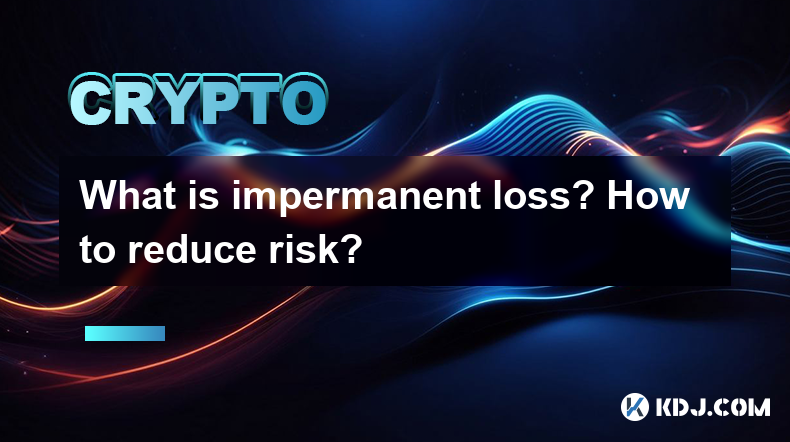
What is impermanent loss? How to reduce risk?
Apr 16,2025 at 11:14pm
What is Impermanent Loss? How to Reduce Risk? Impermanent loss is a term that frequently surfaces in the world of decentralized finance (DeFi), particularly when discussing liquidity provision on automated market makers (AMMs) like Uniswap or SushiSwap. Understanding this concept is crucial for anyone looking to engage in liquidity provision, as it dire...

What is impermanent loss insurance? What are the solutions?
Apr 12,2025 at 01:14am
What is Impermanent Loss Insurance? What are the Solutions? Impermanent loss is a significant concern for liquidity providers in decentralized finance (DeFi) platforms. It occurs when the price of tokens in a liquidity pool changes compared to when they were deposited, leading to a potential loss if the provider decides to withdraw their liquidity. To m...

What are algorithmic stablecoins? How do they maintain anchoring?
Apr 12,2025 at 11:35am
Algorithmic stablecoins represent a fascinating and innovative segment within the cryptocurrency ecosystem. These digital assets are designed to maintain a stable value, typically pegged to a fiat currency like the US dollar, through the use of algorithms rather than traditional collateral. This approach distinguishes them from other types of stablecoin...

What is leveraged mining? How is risk-return calculated?
Apr 11,2025 at 04:07pm
What is Leveraged Mining? How is Risk-Return Calculated? Leveraged mining is a strategy used in the cryptocurrency space where miners borrow funds to increase their mining capacity and potential returns. This approach can amplify both profits and losses, making it a high-risk, high-reward endeavor. Understanding how to calculate the risk and return asso...

What is an aggregator? How does 1inch optimize transaction paths?
Apr 12,2025 at 05:00pm
An aggregator in the cryptocurrency space is a tool that compiles and compares data from multiple decentralized exchanges (DEXs) to find the best possible trading routes and prices for users. Aggregators are essential for traders looking to optimize their transactions, as they can automatically search through various liquidity sources to ensure the most...

What is a flash exchange? How is it different from a normal exchange?
Apr 16,2025 at 03:43pm
A flash exchange, also known as a flash swap, is a relatively new concept within the cryptocurrency space that has gained significant attention due to its innovative approach to trading. Unlike traditional exchanges, flash exchanges leverage the power of decentralized finance (DeFi) protocols to enable instant, collateral-free trades. In this article, w...

What is impermanent loss? How to reduce risk?
Apr 16,2025 at 11:14pm
What is Impermanent Loss? How to Reduce Risk? Impermanent loss is a term that frequently surfaces in the world of decentralized finance (DeFi), particularly when discussing liquidity provision on automated market makers (AMMs) like Uniswap or SushiSwap. Understanding this concept is crucial for anyone looking to engage in liquidity provision, as it dire...
See all articles






















































































